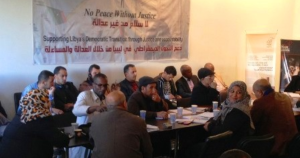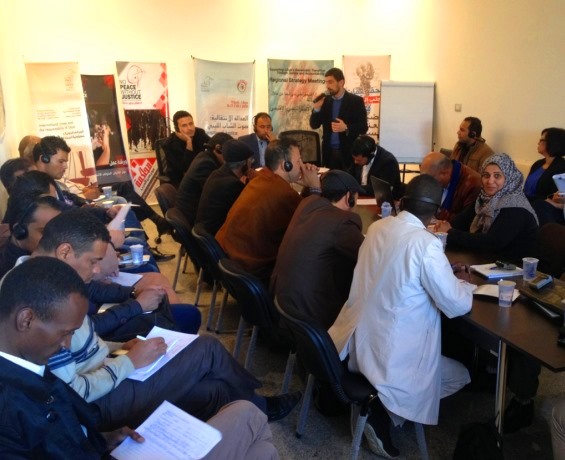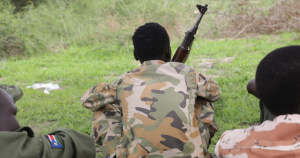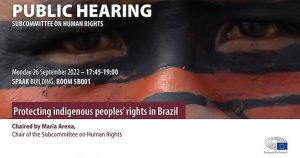Tripoli, 21 January 2014
No Peace Without Justice (NPWJ), in collaboration with the Right Direction Organization for Human Rights (RDOHR), one of its local partners in Libya, convened a meeting on the role and capacities of Libyan tribes in solving internal conflicts, within its broader program on Transitional Justice (TJ) in Libya. The meeting, held on 21 January 2014 in Tripoli, formed part of the series of colloquiums that NPWJ has organised regularly since the launch of the Libya program, providing an occasion to generate constructive discussion within civil society and the legal community. On this occasion, there were more than 30 participants, including local activists, lawyers, students and representatives of minorities, who engaged in an open and vibrant discussion.
The session started with the presentation of the outcomes of two workshops previously convened by RDOHR and NPWJ, with the support of the Embassy of The Netherlands in Libya, in Al Bayda and Sirte in December 2013. The Director of RDOHR underlined the important role that both tribal groups and civil society organisations could play in the country’s ongoing transition process. From one side, tribal groups have an historical role in designing social linkages, preventing clashes and solving internal and external conflicts. From the other side, civil society organisations, which have been flourishing in the aftermath of the revolution, provide crucial opportunities for activists to participate and advocate for human rights. These two sectors share common interests, which can give way to positive and effective synergies.

During the discussion, participating experts gave an overview of the tribal structure in Libya and their regional representation, highlighting their demonstrated capacities to represent a stable answer for conflict-solving. Examples from other countries with similar tribal structures show that traditional justice can play a key role within a transitional justice process, in order to achieve reconciliation by giving priority to truth-seeking at a local level.
Participants shared their different views on the role that tribes could and should have in a modern Libya. If some expressed their willingness to build a new Libya based on different social rules than in the past, others mentioned how Libya is per se a tribal society and that the positive role tribes can play in the future should not be neglected. All the participants agreed on the fact that, whatever role the tribes will have in the future, respect for human rights and the rule of law has to prevail. At the end of the meeting, participants stressed the necessity to promote other similar meetings to discuss the issue further.
NPWJ in Libya
NPWJ has been working on the Libyan transition since early 2011, in the framework of its project to support Libya’s democratic transition through justice and accountability. As the country embarks on legislative reforms, the Libyan authorities can break with the legacy of impunity and abuses that typified Gaddafi’s rule with a new respect for the rule of law and a commitment to restoring justice and dignity to victims. Doing so requires not only the investigation and prosecution of the crimes and violence perpetrated during the revolution, but also efforts to confront a history of oppression and human rights abuses that dates back decades under the rule of the former regime.
For further information on the activities of NPWJ in Libya please contact Stefano Moschini, Libya Program Coordinator, at smoschini@npwj.org or +218917450375.




